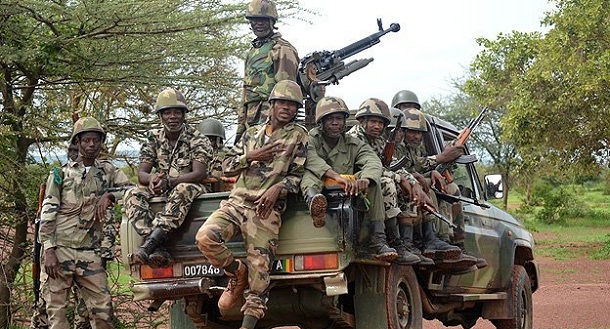Recent events in Mali have drawn attention to the expanding reach of the Russia-Ukraine conflict, signaling dangerous times ahead for West Africa. In mid-2024, Russia suffered significant blows both at home and abroad, including a surprising attack by Ukraine on Russian territory and a deadly assault on Russian-backed Wagner mercenaries in Mali.
The situation in Mali escalated when an alliance of Tuareg rebel groups, known as the Permanent Strategic Framework for the Defense of the People of Azawad, joined forces with Jama’at Nusrat al-Islam wal-Muslimin, a coalition of four terrorist groups operating in Mali, Burkina Faso, and Niger. Together, they launched a three-day attack against a Malian army contingent supported by Wagner fighters, resulting in heavy casualties on both sides.
This attack is significant for several reasons. It underscores the Malian junta’s struggle to secure the country, despite its initial promise to do so by expelling French forces and aligning with Russia. Furthermore, it highlights the growing impact of global geopolitics on the region, raising concerns about a potential proxy war between Russia and Ukraine unfolding on African soil.
Ukraine’s involvement in Mali marks the second instance of its participation in African conflicts, following its activities in Sudan’s civil war, where Russia also has interests. This development suggests that African countries, despite their efforts to remain neutral, are increasingly being drawn into the Russia-Ukraine conflict.
The implications of a new proxy war in Africa are severe. The continent’s security landscape is already fragile, with ethnic tensions, religious conflicts, inequality, and poverty contributing to instability. The conflict in Libya, which has lasted for decades due to foreign intervention, serves as a stark reminder of the dangers of external interference.
The foreign dimension of the Mali conflict became more apparent when Andriy Yusov, a representative of Ukraine’s security service, publicly stated that Ukraine had “enabled” the attack on the Malian army and Wagner forces. This statement, along with accusations against Ukraine’s ambassador to Senegal, Guinea-Bissau, Côte d’Ivoire, and Liberia for supporting the attack, has led to a diplomatic fallout. Mali and Niger have severed ties with Ukraine, and Senegal has summoned the Ukrainian ambassador. The Economic Community of West African States (ECOWAS) also condemned any outside interference in the region.
Ukraine’s involvement in the death of Malian soldiers has drawn widespread condemnation, with Russia seizing the opportunity to portray Ukraine as an enemy of Africa. Russian officials have accused Ukraine of opening a “second front” in Africa and supporting terrorist groups, further straining relations between the two countries.
In June 2024, Ukrainian President Volodymyr Zelenskyy held a summit to garner international support against Russia’s invasion. Although 92 countries participated, including 57 heads of state or government, only a small number of African nations attended, reflecting their reluctance to get involved in the conflict.
Russia, meanwhile, has positioned itself as an alternative to Western influence in West Africa, capitalizing on the region’s instability to fill the void left by France and its allies. Russia’s Foreign Minister Sergey Lavrov recently reaffirmed Russia’s commitment to supporting Mali in its fight against terrorism and addressing socioeconomic challenges.
As the situation unfolds, African leaders face the challenge of preventing further external interference that could destabilize the region. They must also address internal issues, such as the Tuareg conflict in Mali, to ensure lasting peace. The experience of Niger’s former president, Mahamadou Issoufou, who managed to placate the Tuaregs during his tenure, offers valuable lessons for resolving similar conflicts in Mali.
The unfolding events in Mali and the broader Sahel region serve as a stark reminder of the risks posed by foreign intervention and the urgent need for African-led solutions to the continent’s challenges.

